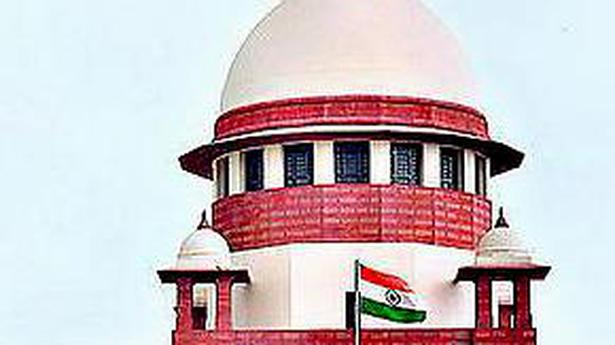
SC to consider plea seeking ban on people convicted of offences from contesting elections
The Hindu
The Centre had maintained in court that disqualification under the Representation of the People Act of 1951 for the period of prison sentence and six years thereafter was enough for legislators
The Supreme Court on Wednesday said it will consider a plea seeking a lifetime ban on people convicted of offences from contesting elections and becoming Members of Parliament and State Legislative Assemblies.
Appearing before a Bench led by Chief Justice of India N.V. Ramana, senior advocate Vikas Singh, appearing for petitioner Ashwini Upadhyay, said "even a constable can lose his job after conviction".
The Centre had, in an affidavit filed in 2020, maintained in court that disqualification under the Representation of the People Act of 1951 for the period of prison sentence and six years thereafter was enough for legislators.
On Wednesday, senior advocate Vijay Hansaria, the court's amicus curiae, however, said a convicted MP or MLA could come back after the six-year ban and make laws.
In its affidavit in December 2020, the Ministry had rejected the idea of a lifetime ban on convicted persons contesting elections or forming or becoming an office-bearer of a political party. The Ministry had reasoned that MPs and MLAs were not bound by specific "service conditions". "They are bound by their oath to serve citizens and country... They are bound by propriety, good conscience and interest of the nation," the Ministry had argued.
The Centre had attempted to buttress its case last year by citing a Constitution Bench decision in the Public Interest Foundation case of 2019 which said "though criminalisation of politics is a bitter manifest truth, which is a termite to the citadel of democracy, be that as it may, the court cannot make the law".
But the Centre’s stand in 2020 contradicted that of the Election Commission of India (ECI). In 2017, the top poll body endorsed the call for a lifetime ban in the apex court. It had argued that such a move would “champion the cause of decriminalisation of politics”. The ECI had then agreed in the Supreme Court that a ban would be in the spirit of fundamental rights of the Constitution, including the right to equality.

“Writing, in general, is a very solitary process,” says Yauvanika Chopra, Associate Director at The New India Foundation (NIF), which, earlier this year, announced the 12th edition of its NIF Book Fellowships for research and scholarship about Indian history after Independence. While authors, in general, are built for it, it can still get very lonely, says Chopra, pointing out that the fellowship’s community support is as valuable as the monetary benefits it offers. “There is a solid community of NIF fellows, trustees, language experts, jury members, all of whom are incredibly competent,” she says. “They really help make authors feel supported from manuscript to publication, so you never feel like you’re struggling through isolation.”










